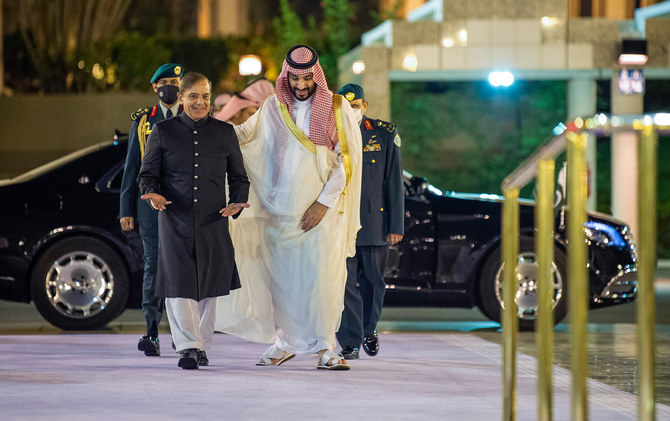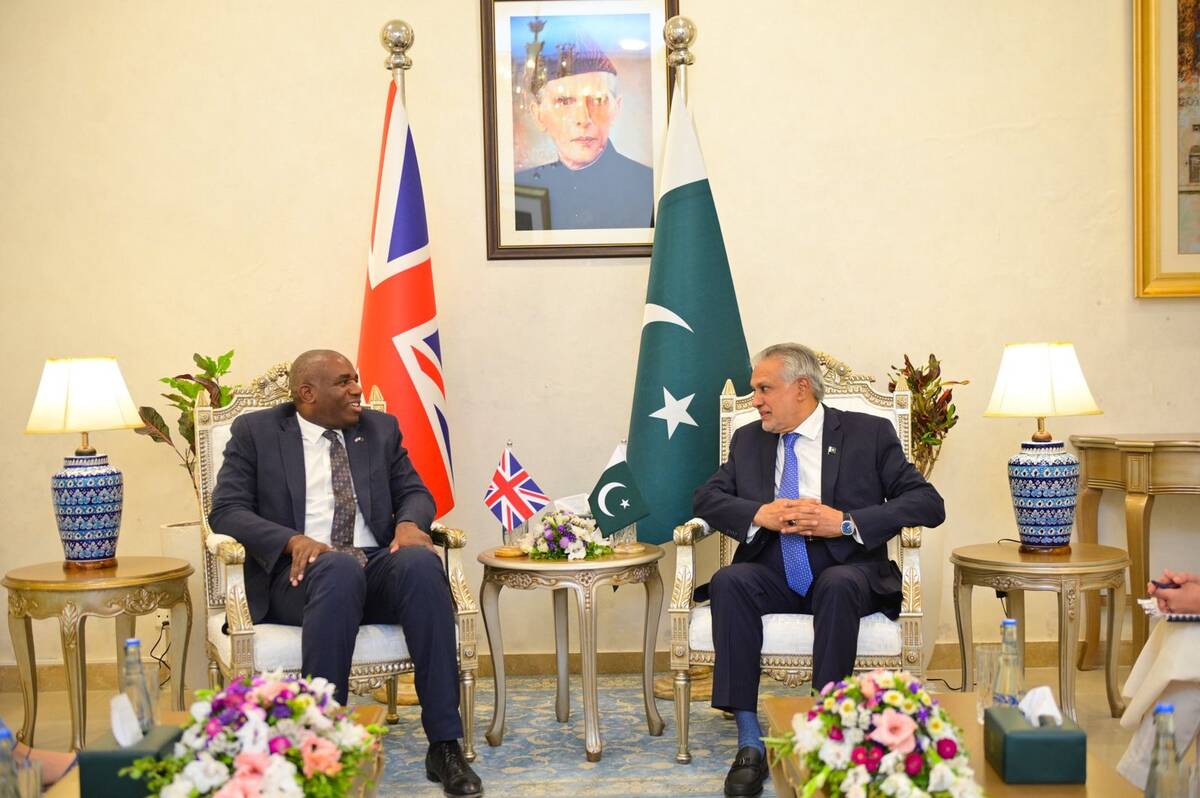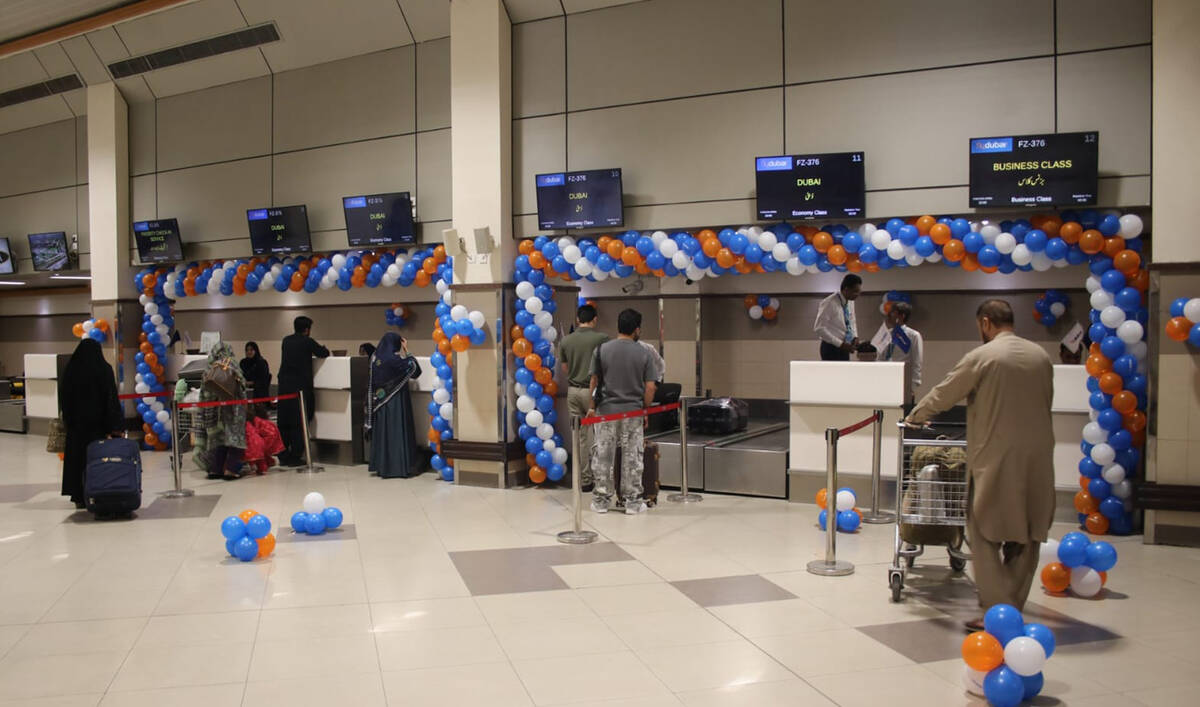ISLAMABAD: Pakistan has agreed with India for “phased de-escalation” after last week’s military conflict between the nuclear-armed neighbors, the Pakistani foreign office said on Friday, adding that military officials from both countries had been in “periodic contacts.”
The latest conflict between India and Pakistan had sparked global concerns that it could spiral into a full-blown war before a ceasefire was announced by United States President Donald Trump. Fighting began when India launched strikes on May 7 against what it called “terrorist camps” in Pakistan following an April attack in Indian-administered Kashmir which killed 26 people.
New Delhi blamed Islamabad for backing the militants it claimed were behind the attack — the deadliest on civilians in Kashmir in decades. Pakistan denies the charge and has demanded a credible, international probe into the assault. Four days of intense drone, missile and artillery exchanges left around 70 people, including dozens of civilians, dead on both sides.
Speaking at a press briefing in Islamabad, Pakistani foreign office spokesman Shafqat Ali Khan said the ceasefire between both nations was achieved through “facilitation of several friendly nations,” reiterating Islamabad’s support for President Trump’s announcement of engaging with Pakistan and India to seek a resolution to the Kashmir dispute.
“I would like to highlight that Directors General of Military Operations of Pakistan and India have maintained periodic contacts since 10th May 2025. Both sides have agreed on a structured mechanism for phased de-escalation,” he said, adding that Pakistan was committed to the ceasefire.
“As a goodwill gesture, Pakistan handed over an Indian Border Security Force constable on May 14, 2025. In return, India released a sepoy of Pakistan Rangers.”
There was no immediate response from New Delhi to Khan’s statement but it came hours after Indian Defense Minister Rajnath Singh said the International Monetary Fund (IMF) should reconsider a one-billion-dollar loan to Pakistan, alleging Islamabad was “funding terror.” Both India and Pakistan, who are members of the International Atomic Energy Agency, have also accused each other of failing to control their nuclear weapons.
“I believe a big portion of the $1 billion coming from IMF will be used for funding terror infrastructure,” Singh told troops at an air force base in western India. “I believe any economic assistance to Pakistan is nothing less than funding terror.”
The IMF last week approved a loan program review for Pakistan, unlocking a $1 billion payment which the state bank said has already been received. A fresh $1.4 billion loan was also approved for Pakistan under the IMF’s climate resilience fund.
Khan said at a time when the international community was actively promoting regional peace and stability, India’s rhetoric reflected a “persistent tendency to distort facts, justify aggression, and cast unwarranted aspersions” on Pakistan’s nuclear assets.
“Pakistan as a responsible state remains committed to the ceasefire and to taking necessary steps toward de-escalation and regional stability,” he said.
“Given India’s belligerent posture, we call upon our international partners to ensure that India honors its commitments and refrains from further aggression. Should India resume hostilities, Pakistan will have no choice but to respond.”
Bitter rivals India and Pakistan have fought three wars, including two over the disputed region of Kashmir, since gaining independence from British rule in 1947. Both claim the Himalayan territory in its entirety but rule it in part.
India has long battled an insurgency on the side it rules by armed separatists fighting for independence or a merger with Pakistan. New Delhi accuses Pakistan of backing the militants, Islamabad says it only offers political and diplomatic support to the Kashmiris.
The region has long been described as the “nuclear flashpoint” of South Asia and prompted President Trump last week to offer Washington’s mediation to resolve the issue.
“Pakistan firmly believes in peaceful coexistence. We prioritize dialogue and diplomacy over conflict and confrontation. We have consistently advocated for meaningful engagement and result-oriented dialogue to resolve all outstanding issues, including the core dispute of Jammu and Kashmir,” Khan said.
“A just and peaceful settlement of these disputes remains indispensable for lasting peace in South Asia.”
India has for years insisted Kashmir is a bilateral issue and not allowed any third-party mediation.


















